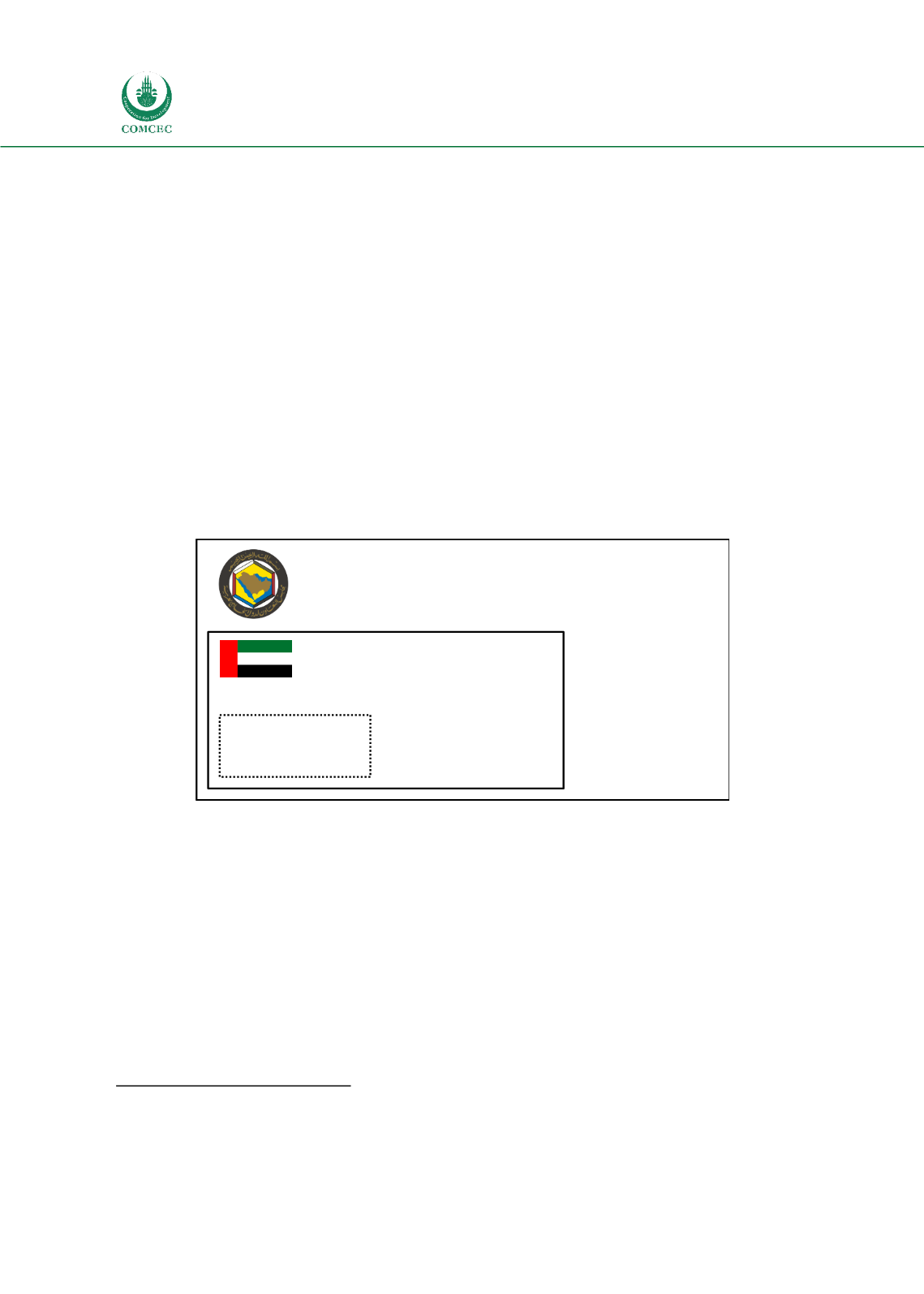

Improving the Border Agency Cooperation
Among the OIC Member States for Facilitating Trade
72
intra-GCC trade. Importantly, the customs union follows the GCC common customs law that
sets uniform customs rules and procedures throughout the union,
122
for example rules for
calculating customs value for foreign goods. The common customs law sets a solid basis for the
elimination of tariff and non-tariff barriers for the intra-GCC trade.
One of the key benefits of the GCC customs union is that it allows the member countries to
negotiate trade agreements with third countries at the GCC level
123
. The UAE and Abu Dhabi
used to have bilateral trade agreements between different GCC member states and other
countries around the world. It was the UAE that entered trade talks with other countries and
negotiated terms of trade agreements. Today, however, GCC negotiates trade deals for its six
member states collectively: the GCC members no longer sign bilateral agreements on their
own. For example, in January 2015, the free trade agreement between GCC and Singapore
entered into force. The new agreement lowered tariffs by 93.3% and granted a zero-tariff entry
for goods from GCC into Singapore. When negotiating with Singapore, Abu Dhabi customs
provided information to the UAE Federal Customs Authority, a body entitled to negotiate at the
GCC level.
Figure 18. Institutional setting for international Border Agency Cooperation
Source: CBRA (public domain info)
Abu Dhabi and the UAE are members of other important intergovernmental organisations and
trade blocks. As a major oil exporter, the UAE is a member of the Organization of the
Petroleum Exporting Countries (OPEC). The UAE is also member of the Greater Arab Free
Trade Area (GAFTA), a regional free trade zone between 17 Arab countries. The UAE takes part
in the Arab League that contributes to the commercial relations and customs matters in its 22
member states. The UAE is also an active member of the World Trade Organization and the
World Customs Organization (WCO). The UAE has signed, for example, the WTO’s General
Agreement on Tariffs and Trade (GATT), the WCO’s Revised Kyoto Convention (The
International Convention on the Simplification and Harmonization of Customs procedures)
122
Though the customs law may be the same in GCC countries, interpretation and therefore practice of these rules differ
from country-to-country.
123
Since 2002, when the GCC member states signed the Economic Agreement, the unified trade policy of the GCC has defined
the trade policy in the UAE, and in Abu Dhabi in particular.
Abu Dhabi
Fujairah
Ras al-Khaimah
Sharjah
Dubai
Umm al-Quwain
Ajman
United Arab Emirates(UAE)
Gulf Cooperation Council (GCC)
Bahrain
Kuwait
Saudi-Arabia
Oman
Qatar
















